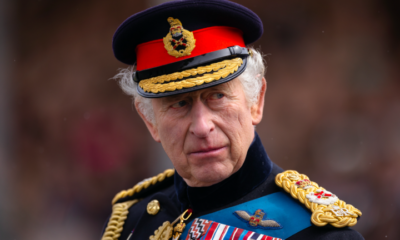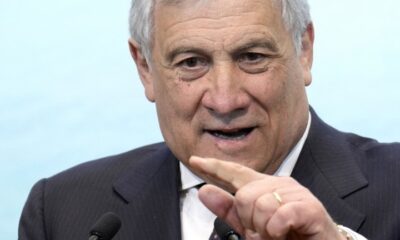POLITICS
Thousands of Fort Bragg soldiers board flights as they are deployed to the Middle East
Published
4 years agoon
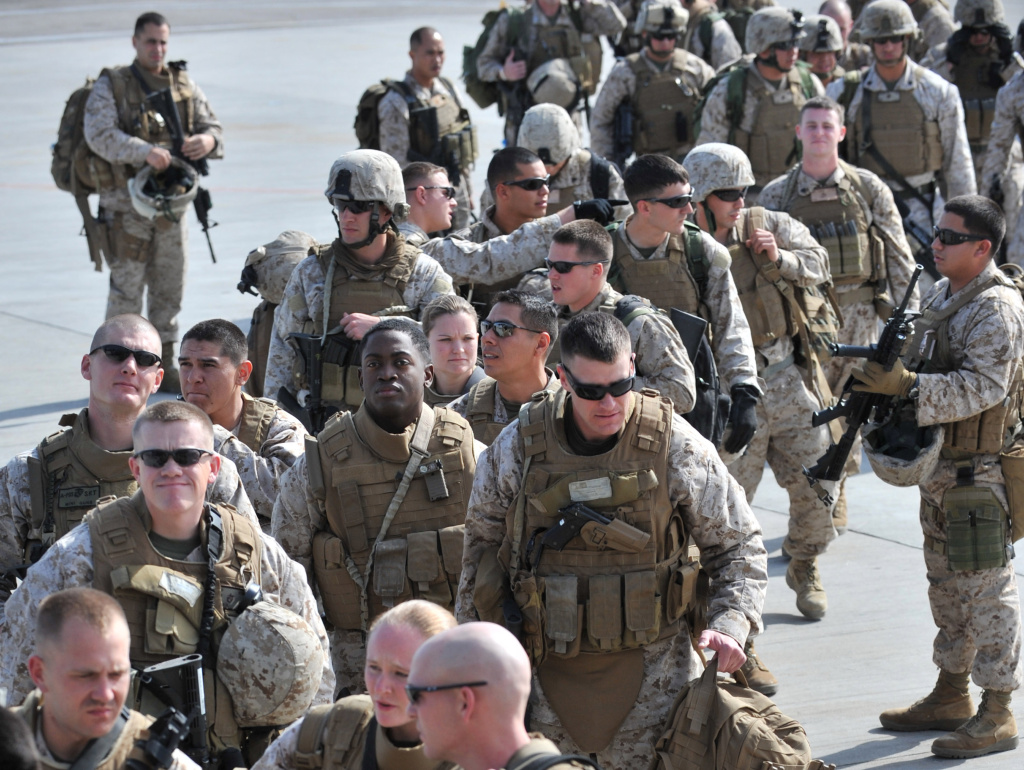
The United States is sending nearly 3,000 more Army troops to the Middle East as reinforcements in the volatile aftermath of the killing of an Iranian general in a strike ordered by President Donald Trump.
Defense officials – speaking Friday on the condition of anonymity – announced the decision that was not yet announced by the Pentagon, and added that the troops are from the 82nd Airborne Division at Fort Bragg, North Carolina.
They are in addition to about 700 soldiers from the 82nd Airborne who deployed to Kuwait earlier this week after the storming of the US Embassy compound in Baghdad by Iran-backed militiamen and their supporters.
The additional troop deployments reflect concerns about potential Iranian retaliatory action. But they also run counter to Trump’s repeated push to extract the United States from Mideast conflicts.
Trump has repeatedly called for withdrawing from Syria and Afghanistan, but over the past year he has greatly increased U.S. troop totals in the Middle East.
More broadly, some congressional Democrats and national security analysts questioned whether the Trump administration is prepared for Iranian retaliation and the prospect of political backlash in Iraq, where American troops are working with Iraqi forces in a sometimes tense partnership against the Islamic State extremist group.
The Pentagon said it wants to sustain that work, but some Iraqi leaders said it might be time for U.S. troops to leave.
On Wednesday at Fort Bragg in North Carolina, paratroopers from the 2nd Battalion, 504th Parachute Infantry Regiment, 1st Brigade Combat Team, 82nd Airborne Division boarded C-17 Globemaster aircraft transports bound for Kuwait. They have since arrived.
The official account for the 82nd Airborne, America’s Division tweeted on Wednesday: ‘Early this morning more than 650 All American Paratroopers and equipment began their deployment to the @CENTCOM (U.S. Central Command) area of operations.
‘This is why we exist. Your @Strike_Hold (1st Brigade Combat Team, 82nd Airborne Division) Paratroopers have trained and prepared for events like these. @OIRSpox (spokesperson for Operation Inherent Resolve), they are on the way.’
Iran-backed militiamen withdrew from the U.S. Embassy compound in Baghdad on Wednesday after two days of clashes with American security forces, but U.S.-Iran tensions remain high and could spill over into further violence.
‘At the direction of the Commander in Chief, I have authorized the deployment of an infantry battalion from the Immediate Response Force (IRF) of the 82nd Airborne Division to the U.S. Central Command area of operations in response to recent events in Iraq,’ Secretary of Defense Mark T. Esper said in a statement.
‘Approximately 750 soldiers will deploy to the region immediately, and additional forces from the IRF are prepared to deploy over the next several days,’ Esper said.
‘This deployment is an appropriate and precautionary action taken in response to increased threat levels against U.S. personnel and facilities, such as we witnessed in Baghdad today. The United States will protect our people and interests anywhere they are found around the world,’ he continued.
On Tuesday, some 6,000 pro-Iran Shiite militia fighters stormed U.S. embassy in Baghdad, set walls ablaze and chanted ‘Death to America!’ in a violent retaliation for American air strikes. There were no reports of American casualties, and the attack was repelled after 100 Marines rapidly reinforced the compound.
The attack on the embassy also prompted U.S. Secretary of State Mike Pompeo to delay a European and Central Asian trip.
Pompeo called the attack an act of ‘state-sponsored terrorism’ in an interview with CBS News, and President Donald Trump vowed that the Iranian government will be held ‘fully responsible’ for the attack.
Pompeo said in a statement that the attack was ‘orchestrated by terrorists’ and ‘abetted by Iranian proxies’, tweeting pictures that he said showed US-designated terrorists with Iranian ties outside the embassy.
In an orchestrated assault, hundreds of militiamen and their supporters broke into the embassy compound, destroying a reception area, smashing windows and spraying graffiti on walls to protest U.S. airstrikes against an Iran-backed militia over the weekend that killed 25 fighters.
The U.S. blamed the militia for a rocket attack on an Iraqi military base in the northern city of Kirkuk last week that killed a U.S. contractor.
The protesters set up a tent camp overnight and on Wednesday set fire to the reception area and hurled stones at U.S. Marines guarding the compound, who responded with tear gas. There were no injuries on either side and no American staff were evacuated from the compound.
The Popular Mobilization Forces, an umbrella group of state-allied militias – many backed by Iran – called on its supporters to withdraw in response to an appeal by the Iraqi government, saying ‘your message has been received.’
By late afternoon the tents had been taken down and the protesters relocated to the opposite side of the Tigris River, outside the so-called Green Zone housing government offices and foreign embassies. U.S. Apache helicopters circled overhead.
‘After achieving the intended aim, we pulled out from this place triumphantly,’ said Fadhil al-Gezzi, a militia supporter. ‘We rubbed America’s nose in the dirt.’ Trump has vowed to exact a ‘big price’ for an attack he blamed squarely on Iran.
Kataeb Hezbollah, the Iran-backed militia targeted by the U.S. airstrikes, initially refused to leave but later bowed to demands to disperse. The militia is separate from the Hezbollah militant group in Lebanon, though both are backed by Iran.
‘We don´t care about these planes that are flying over the heads of the picketers. Neither do we care about the news that America will bring Marines,’ said Mohammed Mohy, a spokesman for Kataeb Hezbollah. ‘On the contrary, this shows a psychological defeat and a big mental breakdown that the American administration is suffering from,’ he said, before withdrawing from the area.
The violence came as Iran and its allies across the region have faced unprecedented mass protests in recent months and heavy U.S. sanctions have cratered Iran’s economy.
Iraq has been gripped by anti-government protests since October fueled by anger at widespread corruption and economic mismanagement, as well as Iran’s heavy influence over the country’s affairs. Those protesters were not involved in the embassy attack.
The Pentagon sent an infantry battalion of about 750 soldiers to the Middle East. A U.S. official familiar with the decision said they would go to Kuwait.
Pompeo postponed a trip that was scheduled to start in Ukraine late Thursday so that he can monitor developments in Iraq and ‘ensure the safety and security of Americans in the Middle East,’ said State Department spokeswoman Morgan Ortagus.
Iran denied involvement in the attack on the embassy. Supreme Leader Ayatollah Ali Khamenei was quoted by media as saying that ‘if the Islamic Republic makes a decision to confront any country, it will do it directly.’
Iran later summoned the Swiss charge d’affaires, who represents American interests in Tehran, to protest what it said was war-mongering by U.S. officials.
Public consular operations at the embassy were suspended and future appointments cancelled, it said in a statement.
Tensions have steadily risen since Trump withdrew the U.S. from Iran’s 2015 nuclear deal with world powers and embarked on a campaign of maximum pressure through economic sanctions. Iran has responded by abandoning some of its commitments under the deal.
U.S. officials have blamed Iran for the sabotage of oil tankers in the Persian Gulf and a drone attack on Saudi oil facilities in September that caused a spike in world oil prices. But the Trump administration has not responded with direct military action, apparently fearing a wider conflict.
The U.S. has sent more than 14,000 additional troops to the Gulf region since May in response to concerns about Iranian aggression. At the time of the attack, the U.S. had about 5,200 troops in Iraq, mainly to train Iraqi forces and help them combat Islamic State extremists.
The U.S. and Iran have vied for influence over Iraq since the 2003 U.S.-led invasion that toppled Saddam Hussein. Iran has close ties to Iraq’s Shiite majority and major political factions, and its influence has steadily grown since then.
Iran helped to mobilize tens of thousands of mostly Shiite militiamen to battle the Islamic State group when it stormed across northern and western Iraq in 2014 as the armed forces collapsed. The U.S. and Iran both provided vital aid to Iraqi forces, who eventually declared victory over the extremists in December 2017.
The political influence of the Popular Mobilization Forces has risen in recent years, and their allies dominate the parliament and the government. That has made them the target of the anti-government protesters, who have attacked Iranian diplomatic missions and the local headquarters of parties affiliated with the militias across southern Iraq.
They have also set up a sprawling protest camp in central Baghdad, and for weeks have been trying to enter the Green Zone. Iraqi security forces have beaten them back with tear gas and live ammunition, killing hundreds.
The militiamen and their supporters, however, were able to quickly enter the Green Zone and mass in front of the embassy, with little if any resistance from authorities.
Iraq’s government vehemently condemned the airstrikes on the militia, saying it violated national sovereignty. But Iran and its allies might have also seen the attack as a way of diverting attention from the anti-government protests.
‘Iran has been trying to provoke the U.S. into helping it solve its Iraq problem,’ said the Crisis Group, an international think tank. ‘The Trump administration, by responding to the attacks in Kirkuk and elsewhere with airstrikes, has obliged.’

You may like
POLITICS
Erdogan election defeat would be ‘revenge’ – Syrian Kurds
Published
12 months agoon
May 23, 2023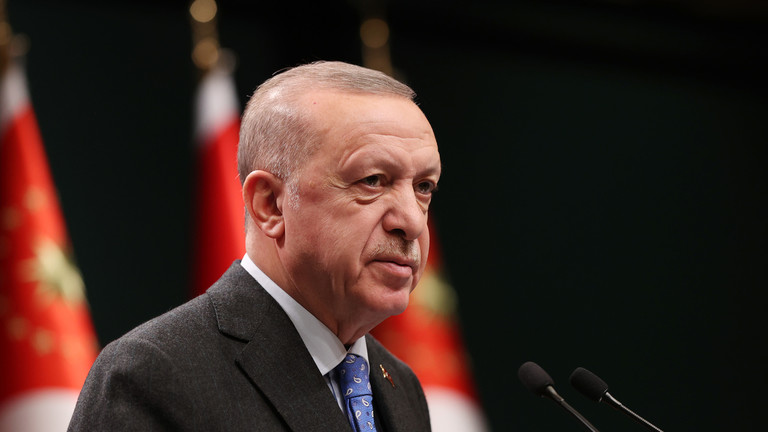
The YPG claims the Turkish president failing to win another term would be payback for Ankara’s counter-terrorism operations in Syria
President Recep Tayyip Erdogan’s defeat in this month’s presidential election would serve as “revenge” for Türkiye’s military operations in Syria, a top official of the People’s Defense Units (YPG) has said.
Salih Muslim, one of the leaders of the YPG — a Syrian militant group affiliated with the Turkish Kurdistan Workers Party (PKK) and designated by Ankara as a terrorist organization — said in an interview with Medya Haber Kurdish TV channel that his organization has grown frustrated with Türkiye’s counterterrorism operations ongoing in the northern part of Syria since 2016, Daily Sabah reported.
“Now, we have an opportunity in our hands,” Muslim said, stressing that the YPG is eager to see Erdogan unseated. “It’s the first time we have such a thing happening in elections.” He added that “If we can win at the ballot box, we will take all the revenge from [the defeat of] one person.”
Muslim’s statement comes as several members of the YPG and the PKK have openly expressed support for Erdogan’s main challenger, Kemal Kilicdaroglu, as the two head into a runoff election on May 28. In the previous round, held on May 14, both candidates failed to secure an outright majority with Erdogan gaining just over 49.4% of the vote while Kilicdaroglu received 44.96%.
Kilicdaroglu has vowed to mend Ankara’s relations with NATO and revive Türkiye’s EU membership talks, which have been effectively stalled since 2016. He has also accused Russia of spreading “conspiracies” and “deep fakes” apparently referring to footage circulating online purportedly linking him to the PKK, and told Moscow to get its “hands off the Turkish state.” Russia has rejected the accusations.
Somalis cheer on Türkiye’s Erdogan to win re-election
Erdogan has repeatedly accused his rival of “colluding with terrorists” and threatening to undo Türkiye’s achievements in its war on terror. He has also blasted Kilicdaroglu for trying to “detach” the country from Russia.
Türkiye has been waging low-intensity warfare against Kurdish militias along its Syrian and Iraqi borders for four decades, in a back-and-forth campaign that has claimed the lives of over 40,000 people.
The PKK and its affiliates have been waging an insurgency since 1984 demanding political and cultural autonomy with the final goal of establishing an independent Kurdish State, laying claim to territories in southeast Türkiye and northern parts of Iraq and Syria.
You can share this story on social media:
PLEASANT MUSIC FOR YOUR CAFE, BAR, RESTAURANT, SWEET SHOP, HOME
SUITABLE MUSIC FOR YOGA LOVERS
Post Views:
840
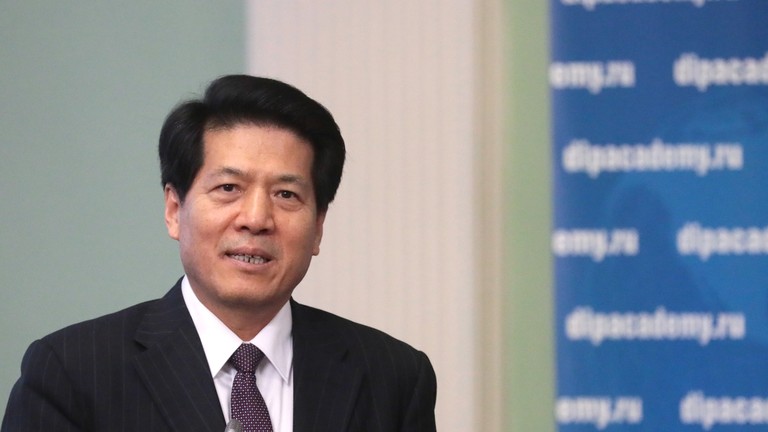
Li Hui visited Kiev to share Beijing’s views on a political settlement to the Ukraine crisis
Ukrainian President Vladimir Zelensky has met with China’s newly appointed special envoy for Eurasian affairs, Li Hui, who traveled to Kiev to convey Beijing’s views on a diplomatic resolution to Ukraine’s conflict with Russia.
According to a statement published on Thursday by the Chinese Foreign Ministry, Li held talks with Zelensky as well as the head of the Ukrainian President’s Office, Andrey Yermak, Foreign Minister Dmitry Kuleba, and representatives from several other ministries.
Beijing said both sides had agreed that the recent phone call between Chinese President Xi Jinping and Zelensky had outlined the direction for future relations between their two nations, which it stated should be built on mutual respect and sincerity.
During his trip, Li reiterated that Beijing is willing to serve as a peace broker to help reach a political resolution to the conflict with Russia, based on the principles outlined in a 12-point roadmap published by China in late February.
“There is no panacea in resolving the crisis. All parties need to start from themselves, accumulate mutual trust, and create conditions for ending the war and engaging in peace talks,” Li said, according to the Chinese Foreign Ministry’s statement.
The special envoy’s two-day trip to Ukraine is the first leg of a wider European tour, during which he is expected to visit Poland, France, Germany, and Russia. Beijing has explained that the trip aims to promote communication toward “a political settlement of the Ukraine crisis.”
Hungary backs Chinese plan for Ukraine
China’s peace efforts have been welcomed by Russia as well as some European nations such as Hungary, and have been praised for acknowledging the national interests of both parties.
The roadmap, however, has been criticized by some in the West. NATO Secretary General Jens Stoltenberg claimed that China lacked “credibility” as it has refused to condemn Russia’s actions in Ukraine. EU foreign policy chief Josep Borrell insisted that “the only thing that can be called a peace plan is Zelensky’s proposal.”
The Ukrainian president has demanded that Russia must withdraw from territories that Kiev claims as its own, as well as pay war reparations and face an international tribunal. The Kremlin has dismissed the initiative, claiming it does not take into consideration “the realities on the ground,” including the new status of four former Ukrainian regions as part of Russia.
You can share this story on social media:
PLEASANT MUSIC FOR YOUR CAFE, BAR, RESTAURANT, SWEET SHOP, HOME
SUITABLE MUSIC FOR YOGA LOVERS
Post Views:
698
POLITICS
Pakistan’s top court orders release of former PM Imran Khan
Published
1 year agoon
May 12, 2023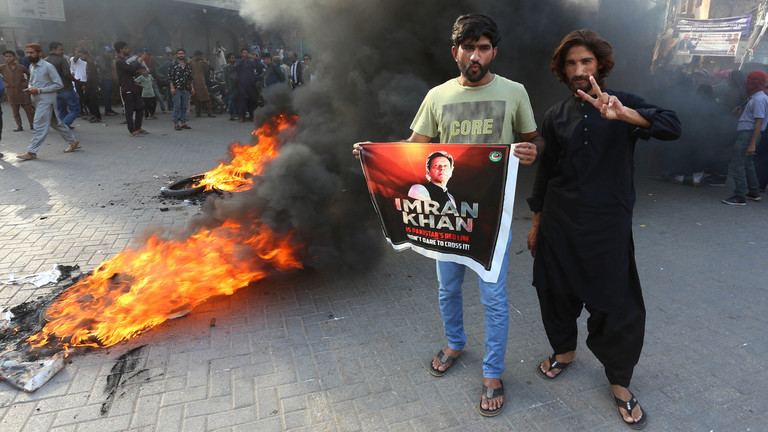
Pakistan’s Supreme Court has ordered the release of former prime minister Imran Khan, whose arrest earlier this week triggered deadly protests across the country, Geo TV news channel has reported.
The court considered an appeal by Khan’s legal team on Thursday, ruling that the arrest of the opposition figure was illegal, according to the broadcaster.
The leader of the Pakistan Tehreek-e-Insaf (PTI) party was detained on an order from the National Accountability Bureau (NAB) on Tuesday as soon as he arrived at a lower court in connection with a graft case against him. He has been held at a police compound in the capital, Islamabad, since then.
Khan’s spokesperson told Al Jazeera that the 70-year-old was apprehended in court before he could even appear before the judges, which was “in violation of all laws.” The PTI party claimed that it was not an arrest, but “an abduction,” and called on its supporters to take the streets.
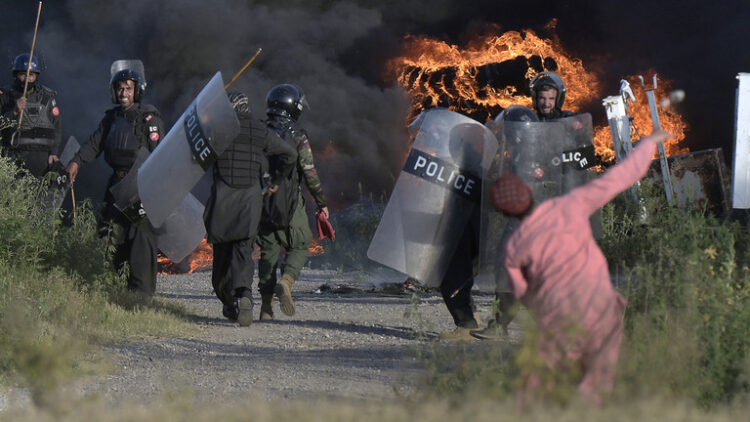
Pakistan deploys army after Imran Khan’s arrest
Pakistan has been gripped by violent protests for the last three days, with demonstrators clashing with security forces and setting government buildings on fire in major cities across the country. The government of Prime Minister Shehbaz Sharif has deployed the military in an attempt to curb the unrest.
Some 2,500 of Khan’s supporters, including some top figures in his party, have been arrested so far. Local media have reported at least 11 protesters killed and hundreds of police officers wounded.
Numerous criminal cases have been launched against Khan since his removal from office after a no-confidence vote in April 2022. The PTI leader, who remains highly popular in the country, denies all accusations against him.
The politician claimed a year ago that he had been deposed as a result of a US-led “international conspiracy” and accused his opponents of receiving money from foreign forces.
Khan has been making active attempts to return to power since then, staging massive rallies across the country. The former premier survived an assassination attempt last November, escaping with a non-life-threatening leg wound after several bullets were fired at him.
You can share this story on social media:
PLEASANT MUSIC FOR YOUR CAFE, BAR, RESTAURANT, SWEET SHOP, HOME
SUITABLE MUSIC FOR YOGA LOVERS
Post Views:
813



Global debt balloons to record highs

German military to sell tons of toilet paper

First female Saudi astronaut heads to space

Nigeria takes step to combat fuel shortages

US will default if debt deal fails – treasury secretary

Village People demand Trump stop using their music

Hollywood star pulls out of hosting awards show amid strike

Rock icon slams German authorities

Agatha Christie novels chopped by ‘sensitivity readers’ – media

Marvel star back in training after breaking over 30 bones

Turkish minister escapes fire blast (VIDEO)

Trump savages pop star’s Super Bowl performance

Alec Baldwin sued by Ukrainian family of slain cinematographer

Duran Duran stumbles, Dolly Parton rolls into Rock Hall

Sweden probes possible plot behind Russian pipeline leaks

FINANCE


Global debt balloons to record highs
It’s now $45 trillion higher than its pre-pandemic level and is expected to continue growing rapidly, a top trade body...


Nigeria takes step to combat fuel shortages
The West African country has built a giant oil refinery to cover domestic demand Nigeria will commission its new Dangote...


US will default if debt deal fails – treasury secretary
The current borrowing limit is a constraint on Washington’s ability to meet its obligations, Janet Yellen insists America’s chances of...


Facebook parent Meta fined €1.2 billion by Irish watchdog
The American tech company has been accused of violating EU data privacy rules US tech giant Meta has been hit...


UK’s business with sanctioned country booming
Trade between Britain and Iran has reached the highest level in a decade, according to official data, apparently having been...

POLITICS


Erdogan election defeat would be ‘revenge’ – Syrian Kurds
The YPG claims the Turkish president failing to win another term would be payback for Ankara’s counter-terrorism operations in Syria...


Chinese special envoy meets with Zelensky
Li Hui visited Kiev to share Beijing’s views on a political settlement to the Ukraine crisis Ukrainian President Vladimir Zelensky...


Pakistan’s top court orders release of former PM Imran Khan
Pakistan’s Supreme Court has ordered the release of former prime minister Imran Khan, whose arrest earlier this week triggered deadly...


Kamala Harris to run AI taskforce
The US vice president will ask AI execs to evaluate the safety and fairness of their models US Vice President...
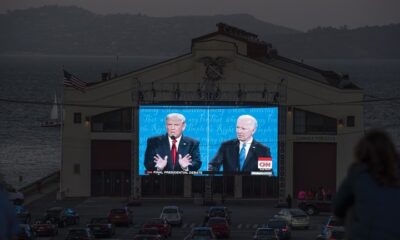

Most Americans want to move on from Biden and Trump – poll
70% of respondents said the incumbent shouldn’t bid for office in 2024, with that figure 60% for the Republican former...

OPINION


Disgraced ex-PM Liz Truss seeks to ruin any hopes for normal UK-China ties
The former premier’s Taiwan trip is nothing but a provocation for Beijing to lash out at London, sinking any constructive...


India facing challenge to steer SCO agenda away from Western-dominated frameworks
The Shanghai Cooperation Organisation is looking at ways to address the most pressing global issues without being a disruptive influence...


China isn’t the biggest threat to Italy’s prosperity
Rome is considering leaving the Belt and Road Initiative in a move which will place virtue signaling to other Western...


Meet the Czech lawyer who rallies thousands to shake up the EU establishment
In mid-April, a fledgling political party that recently formed in the Czech Republic called Pravo Respekt Odbornost (Law Respect Expertise;...


UK shows signs of good will to China, but it’s not the one calling the shots in this relationship
The British foreign secretary says antagonizing Beijing goes against London’s ‘national interests’, but Washington has other ideas British Foreign Secretary...

LIFE


conic Smiths bassist dies aged 59
The bassist with legendary English rock band The Smiths, Andy Rourke, has died at the age of 59, the group’s...


Village People demand Trump stop using their music
A viral video emerged last week of Donald Trump dancing to a Village People song at his Florida estate Village...


Hollywood star pulls out of hosting awards show amid strike
Drew Barrymore is stepping down as host of this year’s MTV Movie & Music Awards, due to be held on...
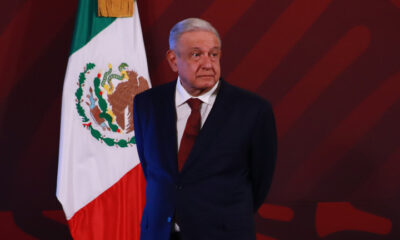

Mexico condemns US ‘interference’ in drug war
The DEA’s infiltration of the Sinaloa Cartel without state permission amounts to espionage, the Mexican president says Mexican President Andres...


Rock icon slams German authorities
Pink Floyd co-founder Roger Waters criticized the city of Frankfurt for canceling his concert and vowed to take legal action...



Trending
-

 FINANCE12 months ago
FINANCE12 months agoFacebook parent Meta fined €1.2 billion by Irish watchdog
-

 LIFE12 months ago
LIFE12 months agoconic Smiths bassist dies aged 59
-
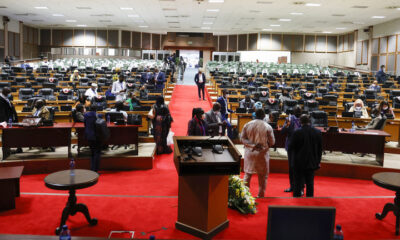
 NEWS12 months ago
NEWS12 months agoKenya supports creation of pan-African court
-

 FINANCE12 months ago
FINANCE12 months agoUS will default if debt deal fails – treasury secretary
-

 FINANCE12 months ago
FINANCE12 months agoGlobal debt balloons to record highs
-
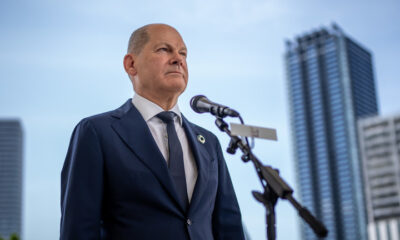
 WAR12 months ago
WAR12 months agoUkraine won’t join NATO anytime soon – Scholz
-

 NEWS12 months ago
NEWS12 months ago‘Subway killer’ Daniel Penny’s actions expose a gap in US law enforcement
-

 NEWS12 months ago
NEWS12 months agoGerman military to sell tons of toilet paper


